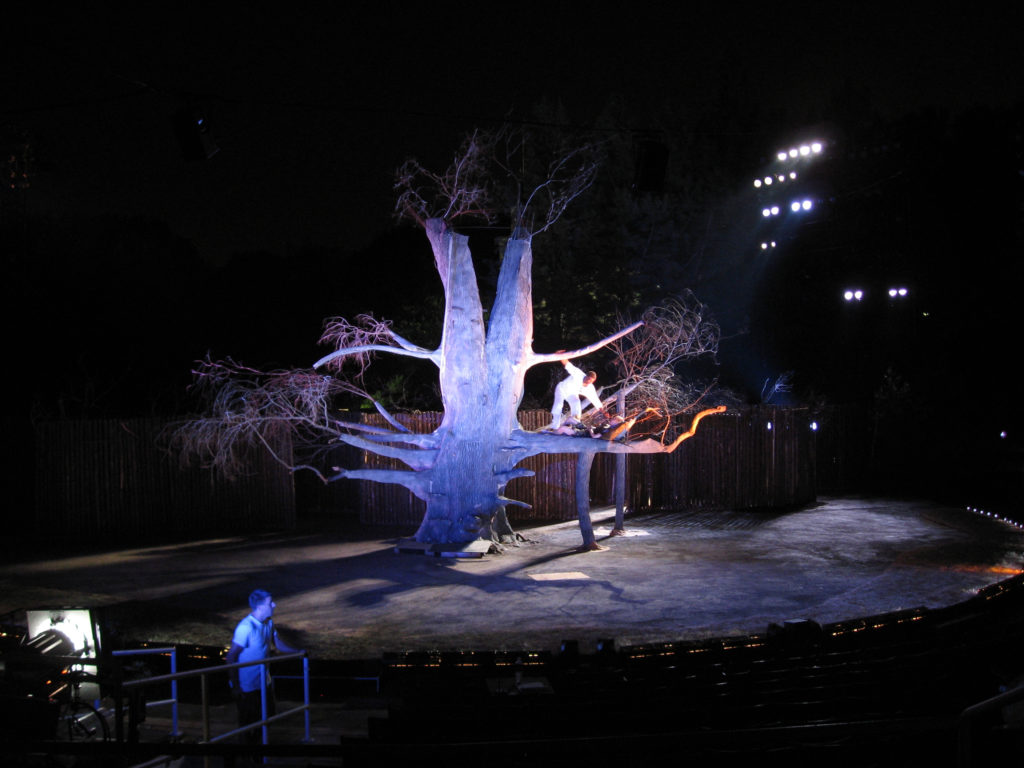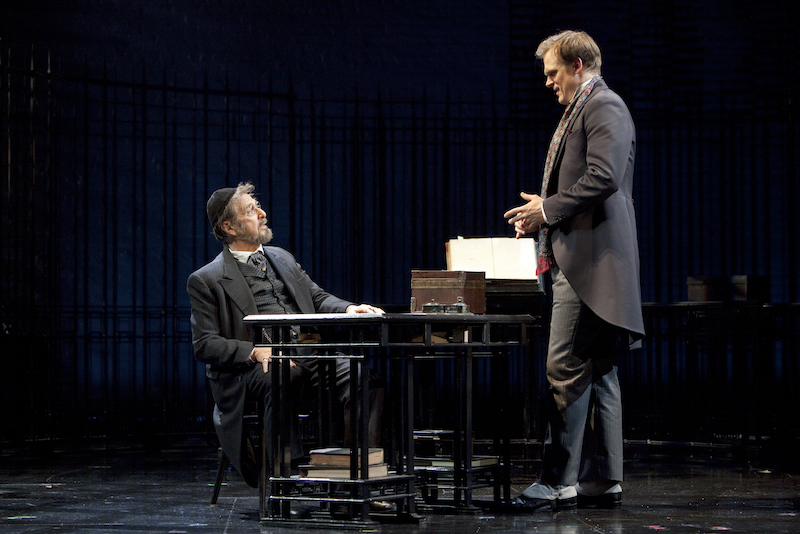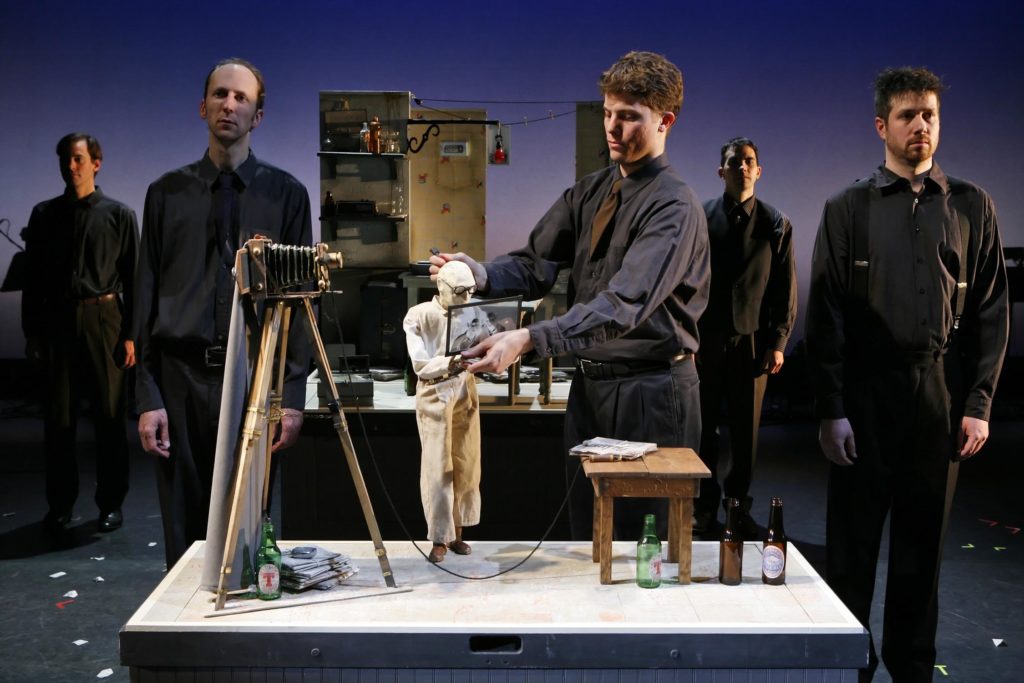
A MIDSUMMER NIGHT’S DREAM at the Delacorte Theater
Dan Moses Schreier wrote the luminous music, scored for a small instrumental ensemble dominated by harp and accordion, an offbeat pairing that couldn’t be prettier. To compose new music for a classic play that has previously been set by Felix Mendelssohn and Benjamin Britten takes a lot of nerve, but Mr. Schreier’s moonlit score, whose climax is a choral finale sung by the entire cast, ends up being one of the best things about this agreeable production.
Terry Teachout – Wall Street Journal
Sullivan has assembled a fairly strong cast, and with the help of costumes by Ann Hould-Ward, Michael Chybowski’s fine lighting and Dan Moses Schreier’s enticing music, Sullivan defines and preserves the three worlds of the play.
– Reuters
Dan Moses Schreier’s melancholy music, with Oriental undertones and shocking moments of discordance, is one of the production’s most original features.
– Lighting & Sound America

THE MERCHANT OF VENICE starring Al Pacino
Many fine composers have embraced the deferential approach to writing incidental music while still showing that such scores can be arresting and sophisticated on their own terms. Two good examples can be heard in New York at the Public Theater’s Shakespeare in the Park productions of “The Winter’s Tale,” with soft-spoken, precisely rendered incidental music by Tom Kitt, and “The Merchant of Venice,” with an atmospheric, intricately textured score by Dan Moses Schreier.
For ‘”The Merchant of Venice,” starring Al Pacino, Mr. Schreier’s music is thick textured and lush, with multiple overlapping elements: choralelike chords, melodic bits, hazy clouds of harmonies. Yet every strand comes through with striking clarity, and nothing sounds overlayered.
When Mr. Schreier wants to shake up the audience and intensify a scene, the music becomes a din, with scrambling scales moving every which way, as in the music of Steve Reich, or a burst of chimes and metallic clanking. But when tenderness is called for, a simple melody on a consoling oboe or a wash of chords, like out-of-focus Debussy, is subtly heard.
The score to “The Merchant of Venice” cast only metaphorical spells, of course. But composers who want a model of how to write effective incidental music should head over to the Delacorte Theater.
Anthoy Tommasini – The New York Times

DISFARMER at St. Ann’s Warehouses
Hurlin’s elegiac Disfarmer is full of sound -Dan Moses Schreier’s excellent, folksy score- and repressed fury – Sally Oswaldís fragmented text -, it too gives an impression of expanding silence.
– Time Out New York
Using the puppet as a guide, Hurlin, aided by Dan Moses Schreier’s wonderful bluegrass underscoring, shows us around smalltown Arkansas as rendered atop a half-dozen rolling carts that unfold or roll together to form Disfarmer’s house, his studio, his local grocery store and the roads he uses to get there.There’s never a moment in which Disfarmer isn’t fascinating.
– Variety
So too, the puppeteers’ dexterity allowed Disfarmer to play a banjo, write a letter and get into bed, with all such actions accompanied by Dan Moses Schreier’s score which captured the isolation and fears which defined his waking hours. Banjo, fiddle and accordion combined for the often wintry soundtrack, characterizing an artist whose work was filled with people, his life with none.
– N.Y. Press
